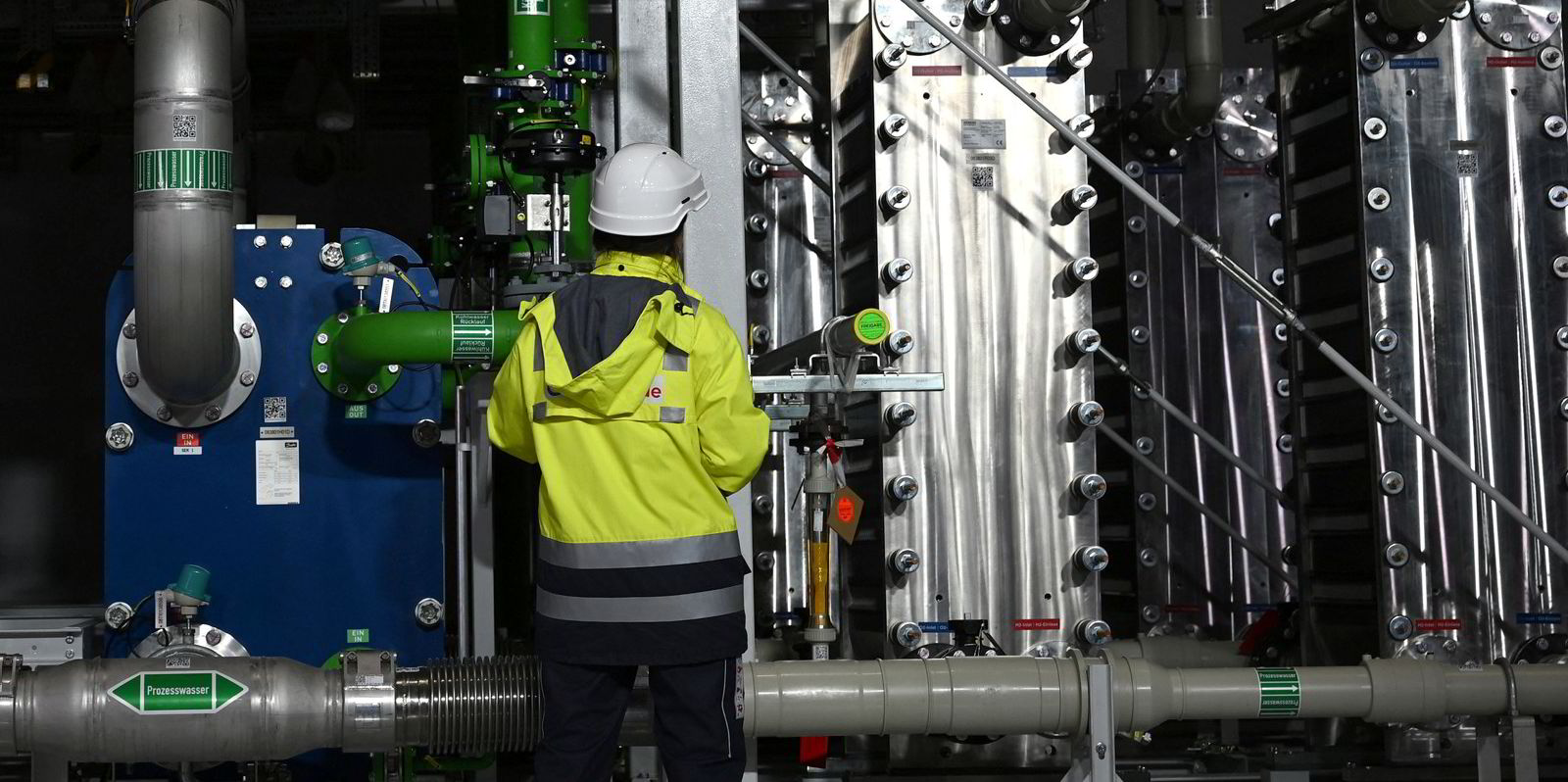Reaching shipping’s net zero goals could create enough green jobs to employ nearly the equivalent of the population of Panama, analysis commissioned by the Global Maritime Forum has found.
Sustainable development consultancy Arup found that the transition to e-fuels — synthetic fuels made from renewable electricity — could support up to 4m new green jobs by 2050, when the International Maritime Organization is targeting net zero greenhouse gas emissions from shipping.
That is double the number of seafarers working on ships today.

Arup found that jobs could be created across the green energy supply chain, including renewable energy generation, as well as the production of hydrogen and e-fuels made from the zero-carbon molecule, the forum said.
The research highlights one of the opportunities for green transition at a time when the IMO is working to establish policy mechanisms to push shipping towards its net zero goal.
Jesse Fahnestock, the Global Maritime Forum’s director of decarbonisation, said the research explores the role that tackling shipping’s greenhouse gas emissions will have on creating jobs in the clean energy sector.
“The analysis demonstrates the sheer scale of the potential to create large numbers of highly skilled green jobs, in this instance driven by a single fuel,” he said, referring to the report’s focus on synthetic fuels.
“Many of these jobs will also be transferable to other sectors — supporting further decarbonisation beyond shipping.”
The Global Maritime Forum, which seeks solutions to shipping’s challenges, said achieving the IMO’s net zero target will require large volumes of zero-emissions fuels.

Many of those will be e-fuels based on hydrogen, a menu that includes green ammonia, methanol and liquefied e-methane — a form of synthetic LNG. To simplify the analysis, Arup looked only at synthetic green ammonia, or e-ammonia.
The forum said shipping’s demand for e-fuels could reach 500m tonnes by 2040 and 600m a decade later.
But that requires investment of $4trn on infrastructure, including facilities to produce renewable electricity, hydrogen and synthetic ammonia.
The job creation predicted by Arup depends on shipping keeping track with the IMO’s “indicative checkpoints” calling for 20% to 30% emissions cuts by 2030 and 70% to 80% reductions 10 years later.
An insight briefing published by the Global Maritime Forum’s Getting to Zero Coalition concluded that green job creation creates a strong connection between shipping decarbonisation and calls for a just transition.
The group said many of the jobs will be created in the Global South, as the world’s developing nations are known.
Global Maritime Forum project manager Connor Bingham, who authored the report, said the “huge levels of investment” involved in shipping’s green transition will provide opportunities for workers negatively affected by the transition away from fossil fuels.
Jeremy Anderson, director of just transition & sustainability at the International Transport Workers’ Federation, said the job creation offered by shipping decarbonisation could help address economic inequalities between developed countries and the Global South.
“However, green jobs must also be good jobs, with decent working conditions, labour rights and a strong voice for workers,” he said in the forum’s statement.



